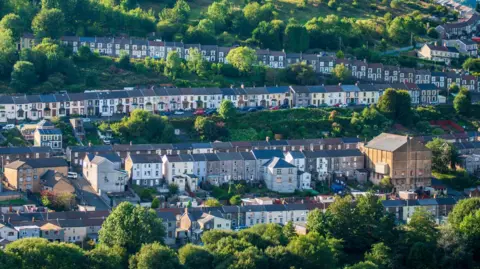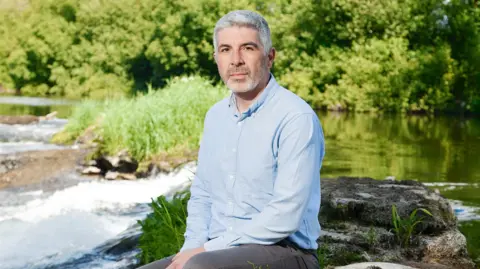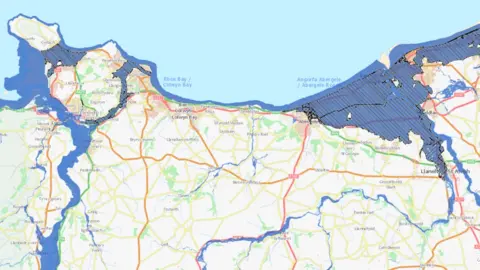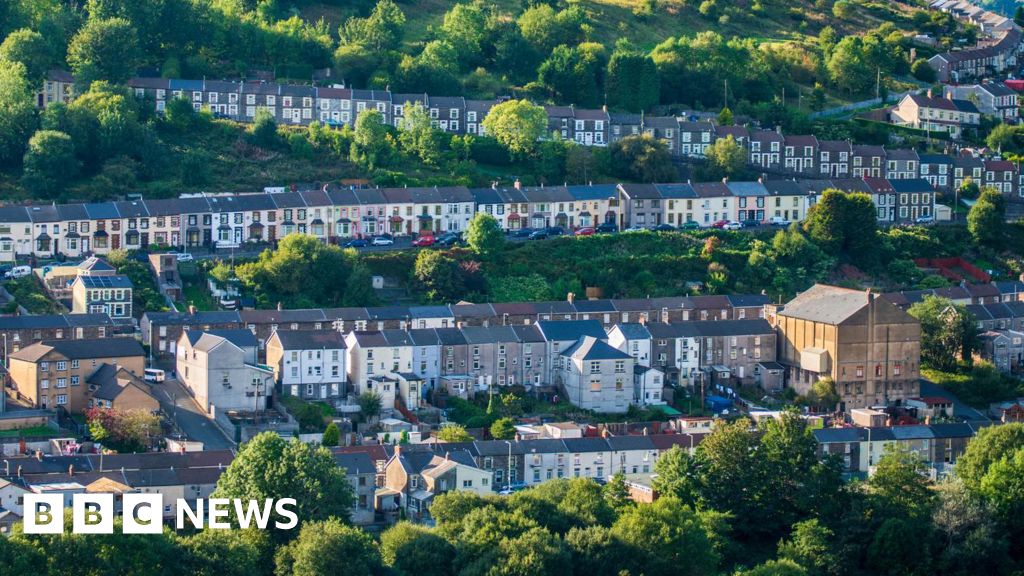Environment correspondent, BBC Wales News
 Getty Images
Getty ImagesWales faces an “unrecognisable future” without urgent action to protect the environment, tackle poverty and ill health, the country’s future generations commissioner has said.
The unique job was created ten years ago with a law which now forces public bodies to consider the long-term impacts of all decisions.
But Derek Walker, who was appointed to the role in 2022, told the BBC he had been “frustrated at progress” as the Wales Audit Office also warned of a failure to achieve “system-wide change”.
The Welsh government said it would review the recommendations carefully before responding formally.
 The Future Generations Commissioner for Wales
The Future Generations Commissioner for WalesAs part of the role, Wales’ future generations commissioner writes a progress report every five years, to be published a year before a Senedd election.
It provides advice on the actions required to protect the Welsh citizens of today as well as “those yet to be born”, Mr Walker explained.
While pointing to successes such as Wales’ world-leading recycling rate and investment in sustainable transport, he warned of “significant” challenges.
These include climate change and the collapse of nature, with 1 in 6 species currently facing extinction from Wales.
There are also 273,000 homes at risk of flooding, a figure projected to double within 100 years, as a result of changing weather patterns and rising sea levels.
While there is a Welsh government target for public sector organisations to reach net zero by 2030 – meaning they no longer contribute to global warning – the report found many concerned about whether they could actually achieve it and needing “significant additional resources”.
On the other hand, the fact that there was no legally-binding nature recovery target in Wales meant that part of the problem “was not given sufficient priority” by the public sector, the report said.
Tougher enforcement of those polluting the environment was also called for, with new legislation needed to give Natural Resources Wales powers to issue civil sanctions, such as stop orders and fines.
 Natural Resources Wales
Natural Resources WalesOther challenges include poverty levels that remained “unacceptably high”.
Nearly one third (29%) of children in Wales live in poverty, while more than 1 in 5 of the population as a whole lived in relative income poverty between 2021-23.
The report called on every public body to commit to a plan within two years that sets out how it would offer the voluntary Real Living Wage – so far only 13 out of 56 have done so.
The commissioner also said Wales “cannot afford to keep treating preventable diseases without addressing their underlying causes”.
NHS Wales spends £1 out of every £10 they have on diabetes, for instance, yet “most Type 2 diabetes cases are preventable” with healthy eating and exercise.
Wales currently has the highest percentage of people living with diabetes in the UK, while around one in four adults are obese.
Life satisfaction and anxiety levels among adults are worsening, and in 2025 many can expect to spend the last 20 years of their lives in ill health.
As the NHS grapples with the population’s acute care needs, funding for preventative measures has been cut.
The report described this as “an act of collective self-sabotage”, warning the health service was “increasingly overwhelmed with preventable diseases and accidents”.
The commissioner also warned that “culture is in crisis” in Wales, insisting the arts were “not a nice-to-have” but rather vital to people’s well-being.
The capacity of the Welsh public sector was described as being “at breaking point” due to rising demand and years of austerity.
Is the Future Generations Act working?
Wales became the first country in the world to legislate for the rights of citizens not-yet-born, when the Well-being of Future Generations Act was passed in 2015.
Ten years on, today’s progress report finds “strong support” across the public sector.
From Welsh government ministers down to those running schools and hospitals, they are now all meant to be evaluating the long-term impacts of their decisions and working collaboratively to tackle future threats such as climate change and growing health inequalities.
But the report found many Public Service Boards – set up to bring different organisations together – were not working well, lacked resources and support.
Leadership approaches across public sector organisations also needed to change in order to successfully implement the Act, it said.
The report calls on the next government to launch a review of the Act, including “a public dialogue on the Wales we want for future generations”.
In a separate study, also published on Tuesday, the Wales Audit Office found the Act was “not driving the system-wide change that was intended”.
“We see good examples, but we also see instances where public bodies have given little or no explicit consideration to the Act,” it said, singling out the health system in particular.
 Future Generations Commissioner
Future Generations CommissionerDerek Walker said Wales had “led the way for the past 10 years with our collective vision for a Cymru that’s protecting future generations”.
“But we’re not on target to meet our health, climate and nature goals that will get us there,” he warned.
“Future generations will live with the consequences of every decision we take to improve people’s lives and with trust in public institutions in decline, we must listen more, engage meaningfully with people’s concerns, and involve them without delay.”
A Welsh government spokesperson said: “Ten years of the Future Generations Act has changed how we work and think about sustainable development, and how we deliver for people and the planet, now and for the future.
“We thank the commissioner and the auditor general for their reports, which highlight achievements such as progress on the circular economy and greater use of the Act, while also identifying areas needing urgent attention.
“We are committed to the Act and are reviewing the recommendations carefully before responding formally.”

